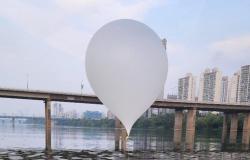
There are extraordinary people who leave a mark in the history of science and female emancipation: Amalia Ercoli Finzi is one of these. Academic, scientist, consultant to ASI, ESA and NASA for various space missions, Gold medal for scientific merit and Grand Officer of the Order of Merit of the Italian Republic, an asteroid and a theorem that bear her name, over 200 scientific publications, director of the famous ESA Rosetta Mission for the study of comet 67P/ Churyumov-Gerasimenko, but also wife and mother of five children. The Lady of the Comets, as she was nicknamed, is nominated for character of the year at Francesca Vecchioni’s Diversity Media Awards scheduled at the Teatro Lirico on Tuesday 28 May. Her CV could fill several sides, but when you talk to her you get the impression that everything is simple and possible.
She was the first woman in Italy to graduate in aeronautical engineering in 1962 with top marks from the Milan Polytechnic. What memories do you have of that period?
«They were wonderful years. I studied things that I really liked. Of course, at that time the Polytechnic, and in particular the faculty I attended, was really demanding. Some of my classmates took six or seven years to graduate, but I finished in five. After all, I had promised it to my father, or rather he had imposed it on me as a condition.”
As a condition for being able to register?
«Of course, neither he nor my family wanted me to do engineering. “It’s not a woman thing,” they said. At most I could have become a mathematics teacher. But I didn’t give up until they accepted. The condition was that I finish university in five years. I took it as a challenge.”
What gave you the strength to stand up to your family and move forward?
«A bit about my character: my desire to always overcome obstacles. Partly the fact that I have always been very curious: I wanted to find an answer to my questions, I had a taste for understanding how things work and engineering is a field in which we try to give answers. And then the strong conviction that there was no reason why I couldn’t do what I wanted to do.”
Did you have any female role models who inspired you?
«There were some female scientists whose story I knew, but when I looked around I realized that what was missing was a model of a woman who was able to keep personal and professional fulfillment together. There were painters who had had extraordinary careers, but had not built a family. And women who had built beautiful families, but had given up on their dreams. And I asked myself: “Is it possible that we can’t keep everything together?”».
His life is the answer: five children, a united family and extraordinary scientific successes. So how does it all hold together?
«I brought the scientific method to family management. In both areas we need to look at the substantial things that ultimately lie on the fingers of one hand and learn to respect the rules: it is a form of civility.”
So she was very strict?
«In my family they didn’t give orders. There were all shared decisions. Love must be the rule and the glue that holds everything together.”
Is at work?
«At work, but also at home, you need to give yourself priorities, decide which things you can’t give up and delegate everything else. I had research groups with very good colleagues who knew how to do some things better than me and to whom I could hand over tasks and responsibilities.”
And did your husband help you in the family?
«When I got married, those were times when the men at home did nothing. But you can ask someone to do the shopping for you, to pick up your children from school, to clean the house.”
Have you ever missed one of your children’s birthdays due to scientific commitments?
«Never, they always came first. I had international meetings moved so I could be there. Once I happened to return early from an important conference, which was held in Venice, because I had to go and talk to the professors.”
Did you try to pass on your love of science to your children?
«I think that each person we come into contact with has their own niche of excellence. It can be in a field of study, but also in a sport, in art. You have to know how to discover and valorize it. This is the way, in the family and at work, to help others and make them grow: guiding them in finding their own talent.”
Young people are often afraid of making mistakes.
«It’s not easy and it’s not immediate, you have to take into account having doubts and also making mistakes. You have to try. It is only by feeling that we can understand what is right for us. Of course it is important to act seriously, but the aim can be corrected. The first choice is not always the right one.”





